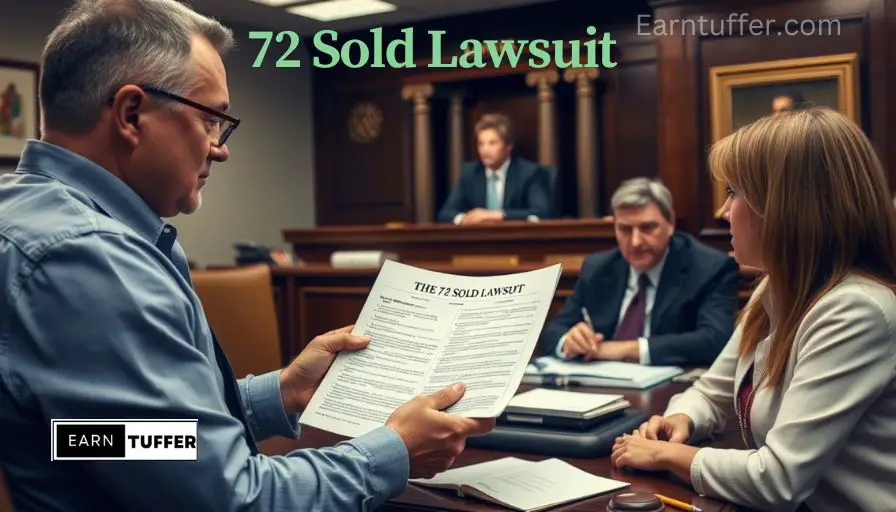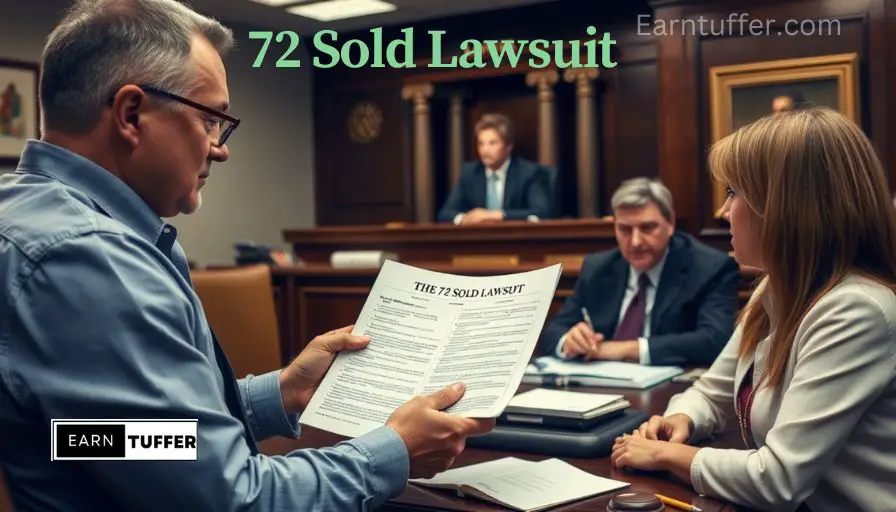The 72 Sold Lawsuit has ignited a firestorm in the real estate industry, drawing scrutiny over claims of deceptive practices, false advertising, and systemic fraud. Centered on 72 Sold—a platform promising homeowners the ability to sell their homes in just eight days at above-market prices—the legal battle raises critical questions about transparency, ethics, and the future of tech-driven real estate models. This article examines the lawsuit’s origins, key allegations, and its broader implications for homeowners and the housing market.
What Is 72 Sold?
72 Sold is a real estate platform founded by attorney and entrepreneur Greg Hague. It markets itself as a groundbreaking service that accelerates the home-selling process. The company claims it can sell homes “A to Z in just eight days” and secure offers “thousands more than traditional sales.”
The model uses:
-
Aggressive marketing strategies.
-
A network of agents.
-
Proprietary tools and data to present homes to buyers quickly.
Sellers typically pay a 6–7% fee, slightly higher than traditional real estate commissions, for the accelerated process.
However, critics argue that these promises are often exaggerated. A growing number of homeowners and franchisees claim the company fails to deliver on its bold assertions, leading to disappointment, financial loss, and legal disputes.
Key Allegations in the 72 Sold Lawsuit
1. False Advertising and Deceptive Practices
One of the most prominent allegations is false advertising. Plaintiffs argue that the guarantee of selling homes in eight days at premium prices is:
-
Statistically improbable in most markets.
-
Misleading due to exclusions such as prep time, staging, and limited buyer interest.
Some homeowners report being pressured into accepting lowball offers or being blindsided by undisclosed fees after signing with the company.
2. Breach of Contract and Embezzlement Claims
Franchisees are also taking legal action. Allegations include:
-
Forced purchases of proprietary software from a Hague-affiliated company (72 Labs).
-
No tangible value in the services provided.
-
Conflicts of interest, with accusations that Hague profited personally from these internal mandates.
These claims suggest that some of the platform’s innovation may be rooted more in questionable financial arrangements than genuine tech-driven efficiency.
3. Regulatory and Market-Wide Issues
The lawsuit comes on the heels of the National Association of Realtors’ (NAR) $1.8 billion settlement over buyer-agent commissions. 72 Sold has been vocal about the need to disrupt traditional real estate systems, but some argue it may be exploiting similar or worse structures:
-
High commissions disguised as a premium service.
-
Aggressive agent incentives and upsells.
-
Lack of consistent pricing transparency.
Legal and Industry Reactions
Consumer Advocates
Groups like TINA.org (Truth in Advertising) warn against services that promise rapid, above-market sales. They suggest these pitches often exploit desperate sellers, especially in overheated or declining markets.
Legal Analysts
Experts say this lawsuit could set legal precedents for regulating real estate tech platforms. Issues such as performance guarantees, pricing transparency, and accountability for franchisees could be clarified by the case.
Industry Impact
If the courts find 72 Sold liable, copycat platforms may need to:
-
Tweak or abandon their advertising strategies.
-
Re-examine contract terms and commission structures.
-
Face stricter state or federal scrutiny.
Homeowner Concerns: What Sellers Should Know
For those considering 72 Sold or similar services, here are key risks to evaluate:
-
Too-Good-To-Be-True Promises: Ask if the “8-day sale” includes listing prep, inspections, or open house events.
-
Hidden Fees: Read contracts thoroughly. Services like staging, photography, and third-party tools may cost extra.
-
Commission Comparison: Traditional agents charge around 5–6%, while discount brokerages may go as low as 1–3%.
-
Legal Advice: Consult a real estate attorney before signing any binding agreement.
The Future of 72 Sold and Real Estate Tech

At the heart of this legal saga is a fundamental question: Can technology truly disrupt real estate without cutting ethical corners?
If courts find that 72 Sold’s claims are misleading, the company may face:
-
Fines.
-
Operational limits.
-
Loss of consumer trust.
-
Even forced dissolution in worst-case scenarios.
On the other hand, a favorable ruling could embolden more platforms to push the limits of advertising and commission structures.
Greg Hague remains publicly defiant, framing the lawsuit as a smear campaign orchestrated by traditional brokers threatened by innovation. Yet legal and market analysts argue that transparency, not gimmicks, will determine which tech-first platforms survive the coming industry shake-up.
Conclusion
The 72 Sold Lawsuit represents a high-stakes clash between innovation and accountability in real estate. While the platform’s bold promises of speed and profit are appealing to many sellers, the growing legal backlash reveals serious concerns about ethics and execution. As the case unfolds, its verdict could reshape not only 72 Sold’s future but also set a benchmark for all digital real estate models. Until then, sellers should proceed with caution—and a legal advisor on speed dial.
